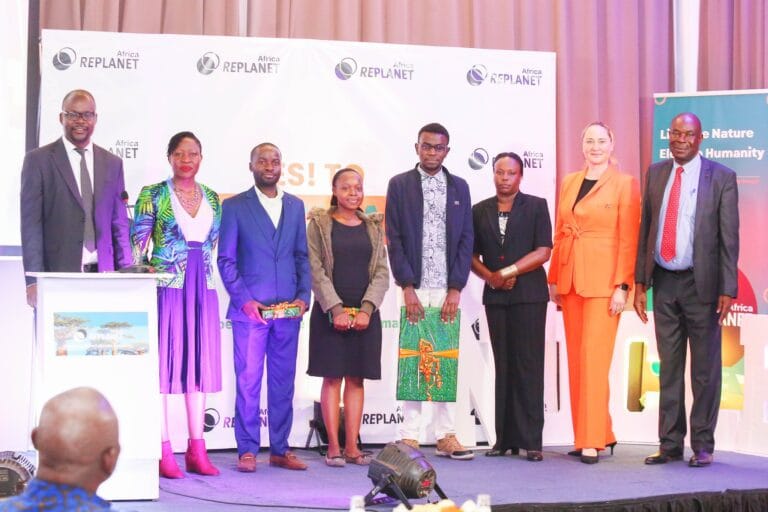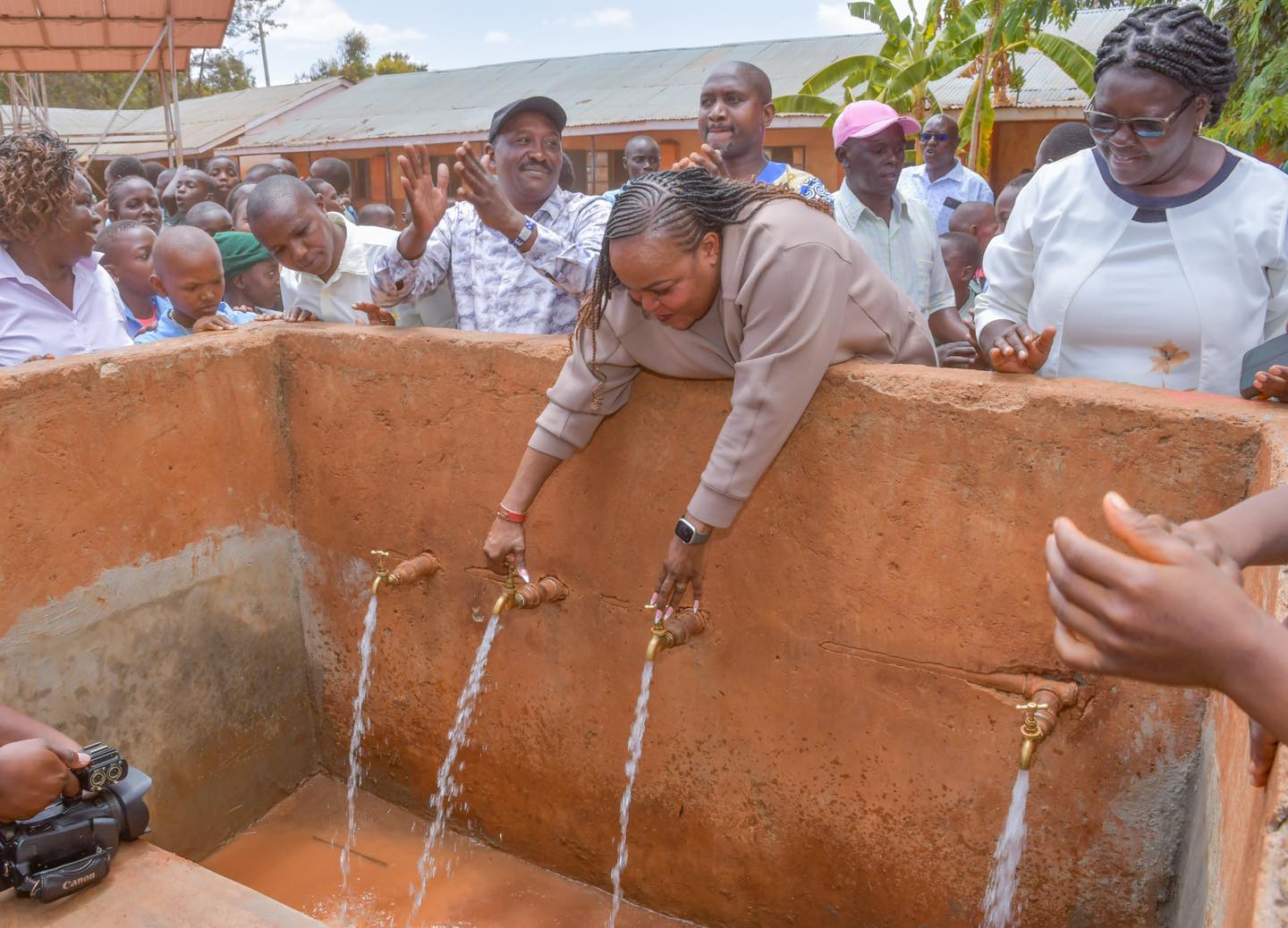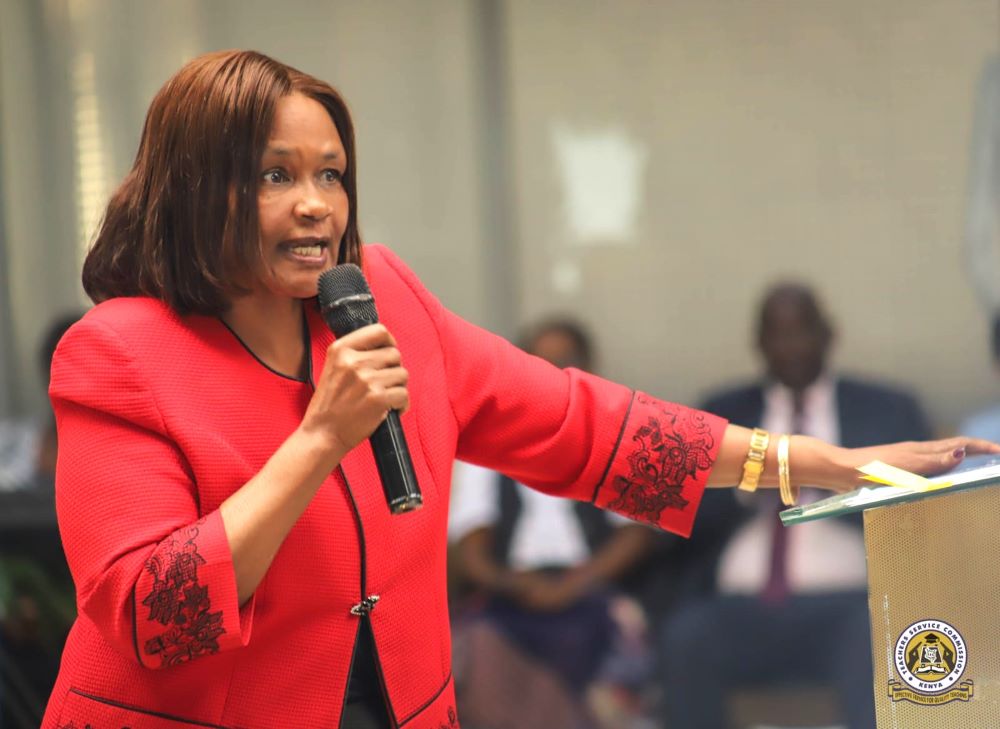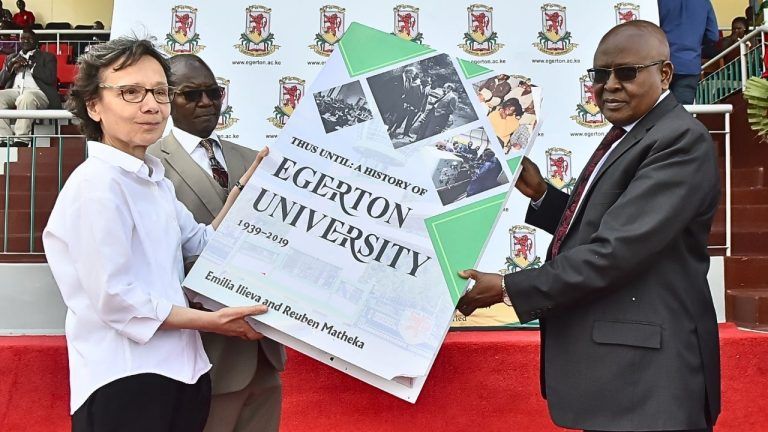Two Jomo Kenyatta University of Agriculture and Technology (JKUAT) students have clinched top positions in an essay writing competition on the role of nuclear energy in Africa’s sustainable development and socio-economic advancement.
The continental competition organized by Replanet Africa brought together 128 participants from 60 universities spread across 13 African countries.
Mike Felix Okoth Ochieng’, a fifth year Electrical and Electronics Engineering student, emerged as the overall winner of the competition while Sandra Afwande Olang’o who is pursuing a Degree in Radiography was declared the fifth best essayist.
Felix sought to demonstrate the veracity of nuclear energy in powering the continent’s industrialization agenda while keeping carbon emissions at bay.
He noted that by tapping nuclear power, the continent can create employment for millions of young people.
“Combining nuclear energy and other renewables like solar will ensure a sustained supply of energy throughout Africa,” he said.
Felix added that by putting up one nuclear power plant with a capacity to produce 1,000 MegaWatts, a total of 200,000 job years will be realized.
In her essay, Sandra noted that nuclear energy is the second largest source of low carbon energy in use today. She argued that as African countries work to leapfrog into a developed status by 2030, integrating nuclear energy into their systems would guarantee power stability and reliability.
“Most sub-Saharan countries have a grid connected power equivalent to Spain’s but with a higher population. Some 600 million lack access to electricity in the continent,” she opined.
To mitigate the risks associated with the adoption of nuclear energy in Africa, the two students called for safety protocols based on global best practices.
“Governments should designate nuclear waste disposal areas far away from the general public till it decays to levels below the ordinary background radiation,” Sandra advised.
Referencing their training at JKUAT, Felix and Sandra reported that JKUAT had effectively prepared them to offer solutions to challenges facing society.
“In most universities, they teach you to understand concepts but in JKUAT they teach you how to apply the learned concepts in real-world scenarios. This makes the university an exceptional institution to study in,” Okoth said.
Access to clean and reliable energy remains a major challenge to Africa’s industrialisation bid. The situation has lately been compounded by climate challenge which has affected the continent the most despite being the least emitter of greenhouse gases.
Tapping nuclear energy would therefore help the continent to overcome the double challenge of energy access as well as climate change.
Following his win, Okoth and his collaborating lecturer, Simon Chege, will have an opportunity to visit a nuclear power plant in South Africa.
By Kamau Njoroge
Get more stories from our website: Education News
To write to us or offer feedback, you can reach us at: editor@educationnews.co.ke
You can also follow our social media pages on Twitter: Education News KE and Facebook: Education News Newspaper for timely updates.
>>> Click here to stay up-to-date with trending regional stories






